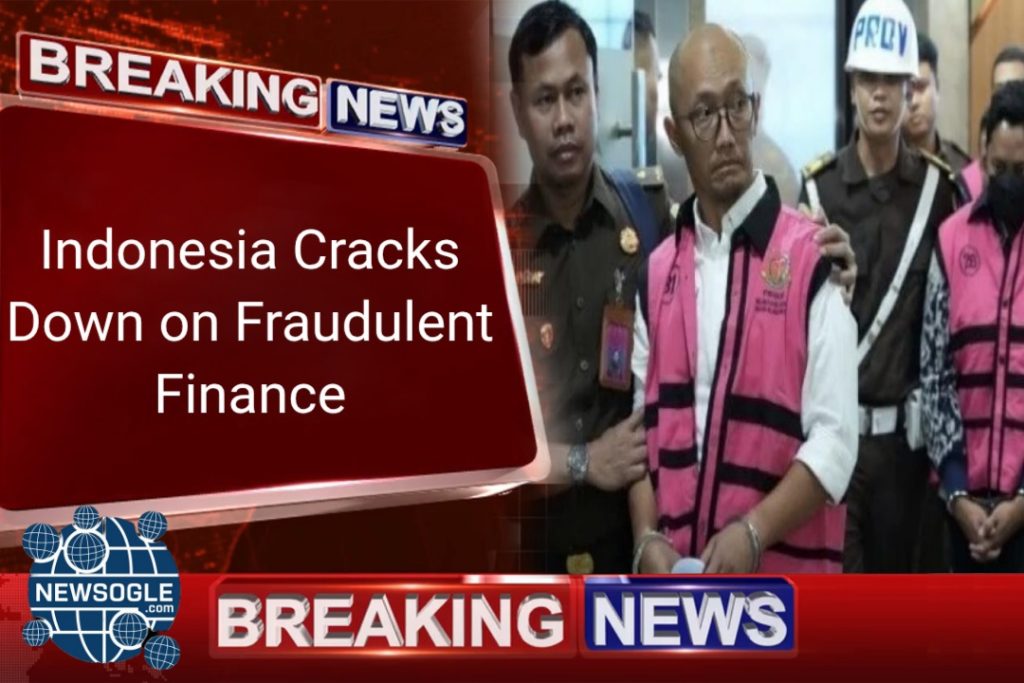
JAKARTA – In a sweeping, nationwide campaign to safeguard consumers and stabilize its financial sector, Indonesia’s Financial Services Authority (OJK) has announced a major crackdown on fraudulent financial activities. The OJK has successfully shut down more than 1,800 unlicensed lending platforms and fake investment schemes, an unprecedented move that highlights the government’s serious commitment to curbing financial crime and protecting its citizens from predatory practices. This massive operation, which has been in the works for several months, represents a critical turning point in Indonesia’s fight against a rapidly growing shadow financial sector that has plagued the nation for years.
The scale of the problem in Indonesia is immense. The rapid adoption of digital technology and a burgeoning young population eager for investment opportunities created a fertile ground for illegal financial ventures. These fraudulent schemes often operate through sophisticated online platforms, social media, and messaging applications, promising exorbitant returns with little to no risk. Victims, often lured by the prospect of quick wealth, include students, young professionals, and low-income individuals who are unfamiliar with the complexities of financial regulations. The lack of financial literacy among a large segment of the population has made them particularly vulnerable to these scams. Furthermore, the anonymity afforded by online platforms has made it difficult for authorities to track down and prosecute the perpetrators.
The crackdown, a collaborative effort involving various government agencies, including the National Police, the Ministry of Communication and Information, and the Ministry of Cooperatives and Small and Medium Enterprises, focused on identifying and disrupting the entire ecosystem of fraudulent operations. The OJK, acting as the primary regulatory body, led the investigation by meticulously analyzing public complaints, monitoring digital platforms, and conducting forensic audits of suspected entities. The coordinated effort enabled authorities to simultaneously dismantle a vast network of illegal lenders and fraudulent investment schemes across the archipelago. The operation was not just about shutting down websites; it also involved freezing bank accounts, seizing assets, and apprehending key individuals behind these illegal ventures.
The tactics employed by these fraudulent lenders were particularly insidious. Many unlicensed online lending apps, commonly known as “fintech” companies, would operate without the required OJK registration. They would lure borrowers with promises of instant loans and minimal paperwork. However, once a loan was approved, the borrowers would be subjected to extortionate interest rates and fees. In many cases, these lenders would illegally access the borrower’s phone contacts and photos, using them to harass and threaten not just the borrower but also their family and friends if a payment was delayed. This has led to numerous cases of psychological distress, public humiliation, and even suicide.
The fake investment schemes, on the other hand, operated like classic pyramid or Ponzi schemes. They would promise returns of 50%, 100%, or even higher, encouraging investors to recruit new members to earn commissions. These schemes would often use slick marketing campaigns, celebrity endorsements, and testimonials from fake “successful” investors to build credibility. In reality, the returns paid to early investors came from the money of new recruits, and the entire structure was designed to collapse once the flow of new money dried up. The OJK has revealed that many of these schemes caused losses in the tens of millions of dollars, wiping out the life savings of countless families.
The OJK’s decision to launch this extensive crackdown was a direct response to the rising number of public complaints and the growing social unrest caused by these financial crimes. The government recognized that a failure to act would not only harm individual citizens but also undermine public trust in the country’s financial system. The OJK’s chairman, in a press conference announcing the results of the operation, stated that the action was a necessary measure to ensure a “healthy, competitive, and fair financial landscape” for all Indonesians. He also urged the public to be more vigilant and to only engage with financial institutions and platforms that are officially registered and supervised by the OJK. A public education campaign has also been launched to raise financial literacy and help consumers identify the red flags of a scam.
While the crackdown has been widely praised, financial experts and policymakers agree that it is just the first step in a long and arduous battle. The nature of digital crime is such that new scams will likely emerge as soon as old ones are shut down. The challenge for Indonesian authorities is to stay one step ahead of the perpetrators. This will require not only continuous vigilance and enforcement but also a legal framework that is robust enough to handle the complexities of modern financial crime. The OJK is reportedly working on new regulations that would impose stricter requirements on financial technology companies and enhance the penalties for illegal operators.
Furthermore, there is a strong call for a greater emphasis on financial literacy education. Many of the victims of these scams were simply unaware of the risks involved. By empowering citizens with the knowledge to make informed financial decisions, the government can reduce their vulnerability to future scams. The OJK is collaborating with educational institutions and non-profit organizations to develop and implement financial literacy programs for all age groups.
In conclusion, Indonesia’s crackdown on unlicensed lenders and fake investment schemes is a landmark achievement in the country’s fight against financial crime. It sends a clear message that the government is committed to protecting its citizens and maintaining the integrity of its financial system. However, the battle is far from over. The real victory will be achieved when Indonesia’s citizens are equipped with the knowledge and tools to identify and avoid these fraudulent schemes on their own, transforming the country from a victim of financial crime into a bastion of financial integrity.




